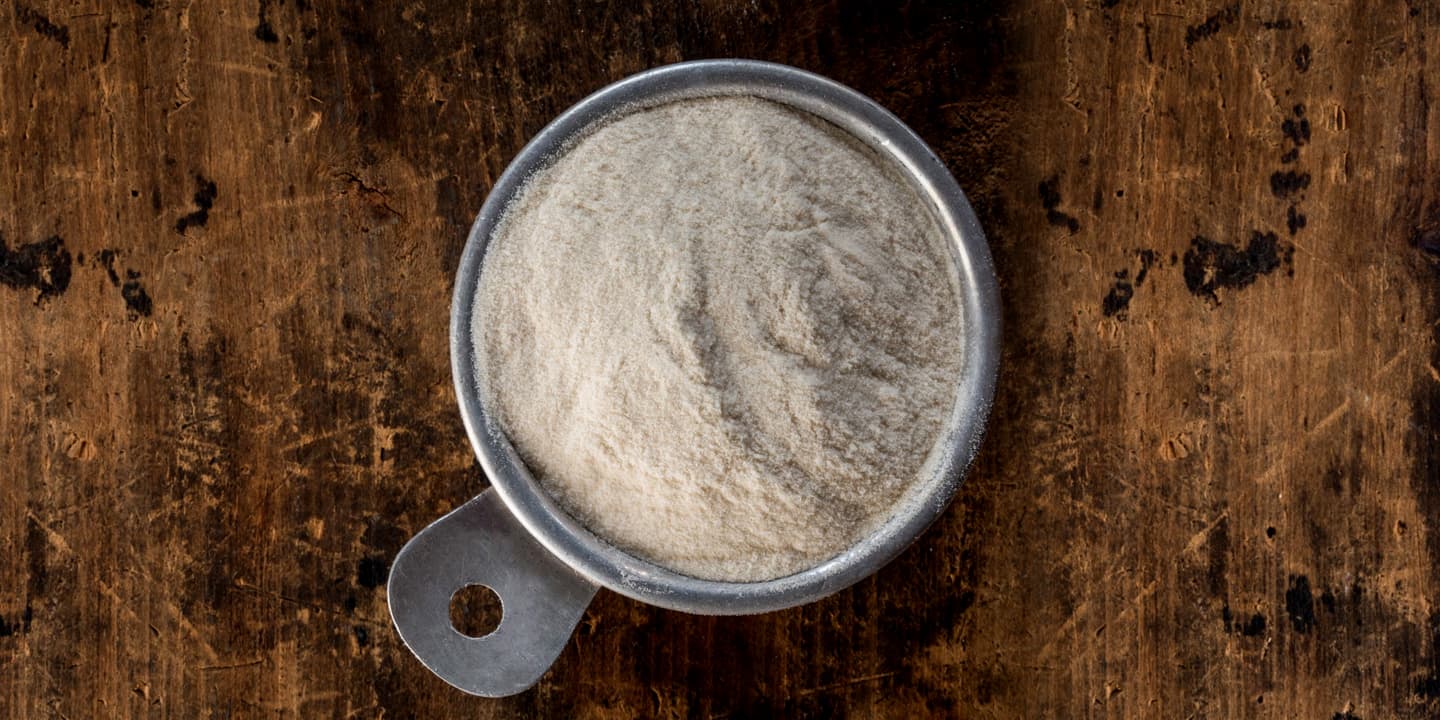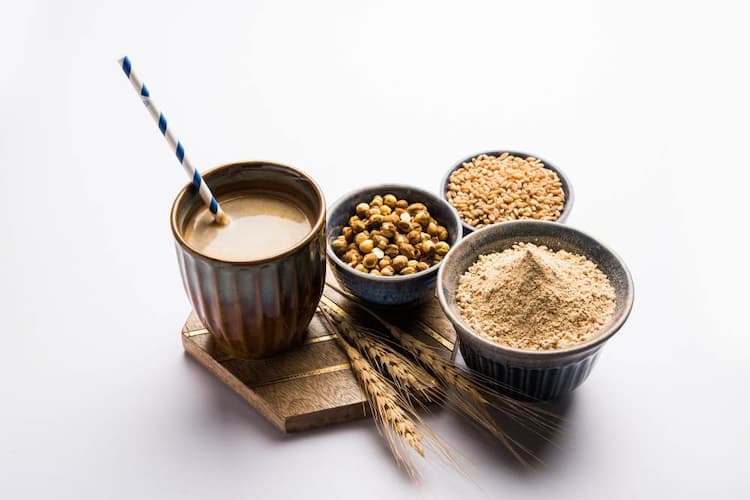E415 (Xanthan gum), a Popular Food Additive Reportedly Affecting Human Gut Microbiota: Research

Medically Reviewed By
Dr. Ragiinii Sharma
Written By Prekshi Garg
on Apr 21, 2022
Last Edit Made By Prekshi Garg
on Mar 17, 2024

Xanthan gum or E415 is a popular food additive that is used in various food products. Almost all of us consume food containing xanthan gum on a daily basis. The xanthan gum got its approval to be used as a food additive from the Food and Drug Administration (FDA) in 1969. However, there is a recent study conducted by Ostrowski et al., that got published in Nature Microbiology in 2022, raises questions about the safety of xanthan gum. In this article, let us discuss the major findings reported in the current research study.

What is Xanthan gum?
Xanthan gum is a polysaccharide with high molecular weight that is produced by the pure culture fermentation of the bacterium Xanthomonas campestris with a carbohydrate source like sucrose and glucose. It is also often used as a stabiliser, emulsifier, and thickener in food. Xanthan gum is indicated as E415, that is, the food additive number given by EFSA under the category of “Food Additives other than Colors and Sweeteners”.
The properties of xanthan gum are as follows:
- Cream-colored powder
- Neutral taste
- Soluble in cold and hot water
- Insoluble in ethanol
- High viscosity
- Stability not influenced by pH
- Shows synergistic interaction with other plant glucomannan
How does Xanthan Gum affect the Human Gut Microbiota?
As previously stated, Xanthan gum was approved by the FDA in 1969 to be used as a safe food additive. The food additive was again evaluated by JECFA in 1986 and was proved to be non-toxic and non-carcinogenic. However, a recent study conducted by Ostrowski et al., in 2022 reported the adverse effect of the food additive on the human gut microbiota. The findings of the study are published in the Nature Microbiology journal. According to the scientists of the University of Michigan, the bacteria in the human gut have adapted remarkably to the food additive in the past 50 years. The earlier research studies related to the xanthan gum depicted that the additive does not get digested in the human body and therefore, does not affect the body. However, in the latest study, it was observed that the food additive negatively affects the good fauna of the human gut. The genetic changes and rapid adaptation were observed in the bacteria of the human gut on prolonged exposure to xanthan gum.
Xanthan Gum-driven food chain
According to the study, the xanthan gum is digested into the human body by a single bacterium of the family Ruminococcaceae. The group of scientists used different methods for the analysis of genes, proteins, transcripts, and enzymes that are produced in the gut of the bacteria. This was done to study the digestion of xanthan gum in the bacterial species. This study objective was carried out by testing the human stool samples and conducting experiments on the mouse in the laboratory. The relevant data was also collected from the large international databases of microbial genes. The experiments showed that the bacterial species Bacteroides intestinalis was also capable of interacting with xanthan gum.
The Ruminococcaceae bacteria interacted with xanthan gum by arresting and breaking down xanthan gum into small pieces which were later on digested by the Bacteroides bacterium with the help of their own special enzymes. This enabled the scientists to state the existence of a Xanthum gum-driven food chain that involved two bacterial species.
Takeaway
Xanthan gum is a substance that has been used for years as a food additive. With the new study being circulated over the internet, the safety of the substance has emerged as a new concern. The contradicting research studies on xanthan gum available in the scientific world make it difficult to draw a concrete conclusion. However, this new study showing the adverse effects of xanthan gum has opened doors for future studies in this field that can support the new findings or the pre-existing ones. Thus, more research in this field needs to be done to draw a reliable conclusion about the safety of xanthan gum.
Frequently Asked Questions (FAQs)
-
What are the nutritional facts related to xanthan gum?
In 1 tablespoon xanthan gum, that is, approximately 8 grams, the calculated nutritional parameters are as follows:
- Calories: 30
- Sodium: 0.7 mg
- Potassium: 0.2 mg
- Total carbohydrate: 7.3 mg
- Dietary fibre: 0.1 mg
-
What is the use of xanthan gum?
Xanthan gums are extensively used in food products that are consumed on a daily basis. The major food products in which xanthan gum is added as an additive include salad dressing, beverages, bakery products, frozen food, dry mixes, syrups, soups, toppings, gravy, sauce, gluten-free bread, dairy and meat products.
-
Is xanthan gum dangerous for human health?
Xanthan gum is currently an FDA-approved food additive that is safe for human consumption. However, the recent study done on xanthan gum raises questions about the safety of this approved food additive.
-
What are the substitutes of xanthan gum available?
There are various substitutes of xanthan gum available that can be used as a food additive. The most common substitutes of xanthan gum are cornstarch, sodium carboxymethyl cellulose, psyllium husk, locust bean gum, agar agar, carrageenan, and gelatin.



